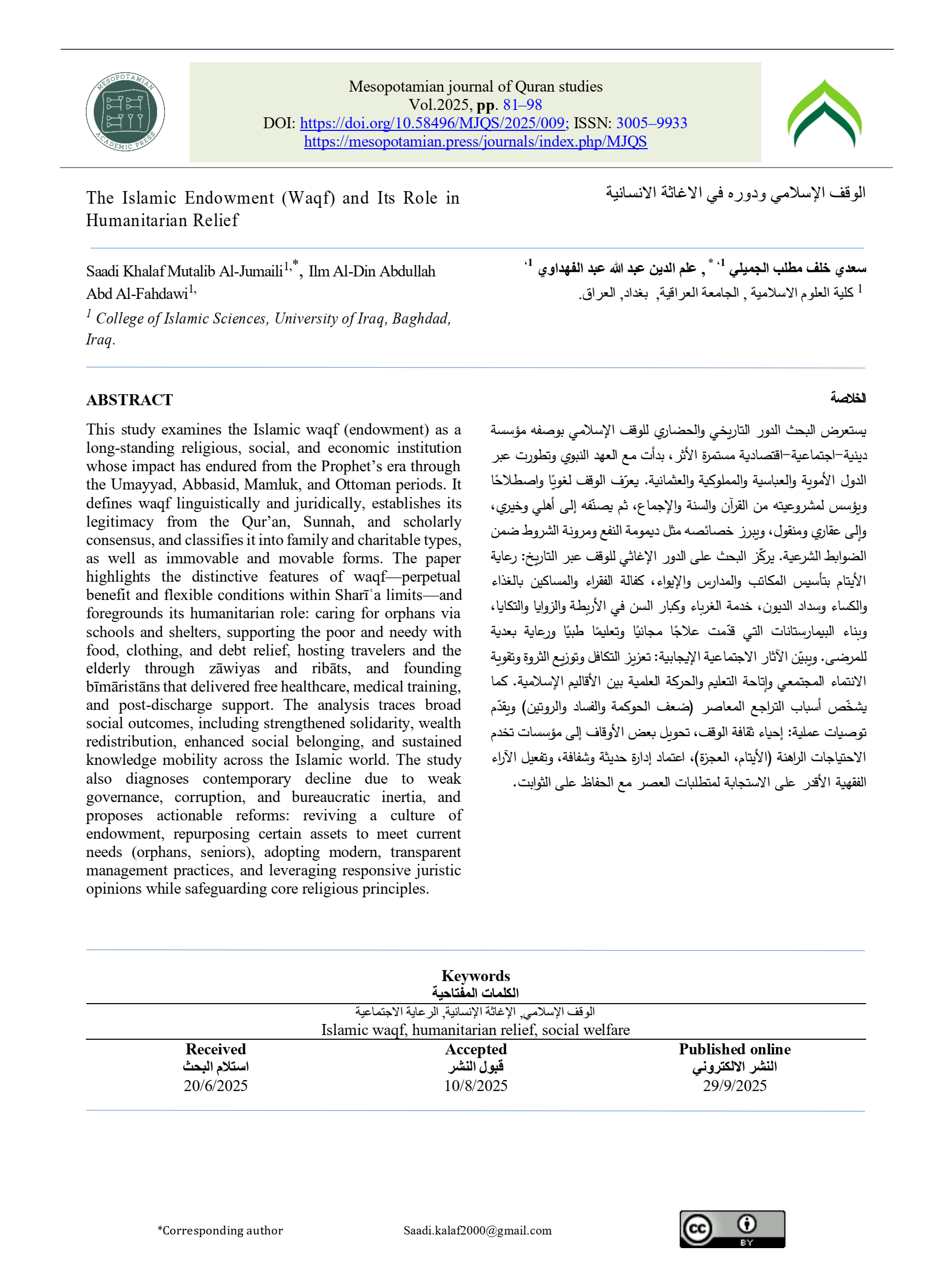The Islamic Endowment (Waqf) and Its Role in Humanitarian Relief
Main Article Content
Abstract
This study examines the Islamic waqf (endowment) as a long-standing religious, social, and economic institution whose impact has endured from the Prophet’s era through the Umayyad, Abbasid, Mamluk, and Ottoman periods. It defines waqf linguistically and juridically, establishes its legitimacy from the Qur’an, Sunnah, and scholarly consensus, and classifies it into family and charitable types, as well as immovable and movable forms. The paper highlights the distinctive features of waqf—perpetual benefit and flexible conditions within Sharīʿa limits—and foregrounds its humanitarian role: caring for orphans via schools and shelters, supporting the poor and needy with food, clothing, and debt relief, hosting travelers and the elderly through zāwiyas and ribāts, and founding bīmāristāns that delivered free healthcare, medical training, and post-discharge support. The analysis traces broad social outcomes, including strengthened solidarity, wealth redistribution, enhanced social belonging, and sustained knowledge mobility across the Islamic world. The study also diagnoses contemporary decline due to weak governance, corruption, and bureaucratic inertia, and proposes actionable reforms: reviving a culture of endowment, repurposing certain assets to meet current needs (orphans, seniors), adopting modern, transparent management practices, and leveraging responsive juristic opinions while safeguarding core religious principles.
Article Details
Issue
Section

This work is licensed under a Creative Commons Attribution-ShareAlike 4.0 International License.
Deprecated: json_decode(): Passing null to parameter #1 ($json) of type string is deprecated in /home/u273879158/domains/mesopotamian.press/public_html/journals/plugins/generic/citations/CitationsPlugin.php on line 68
